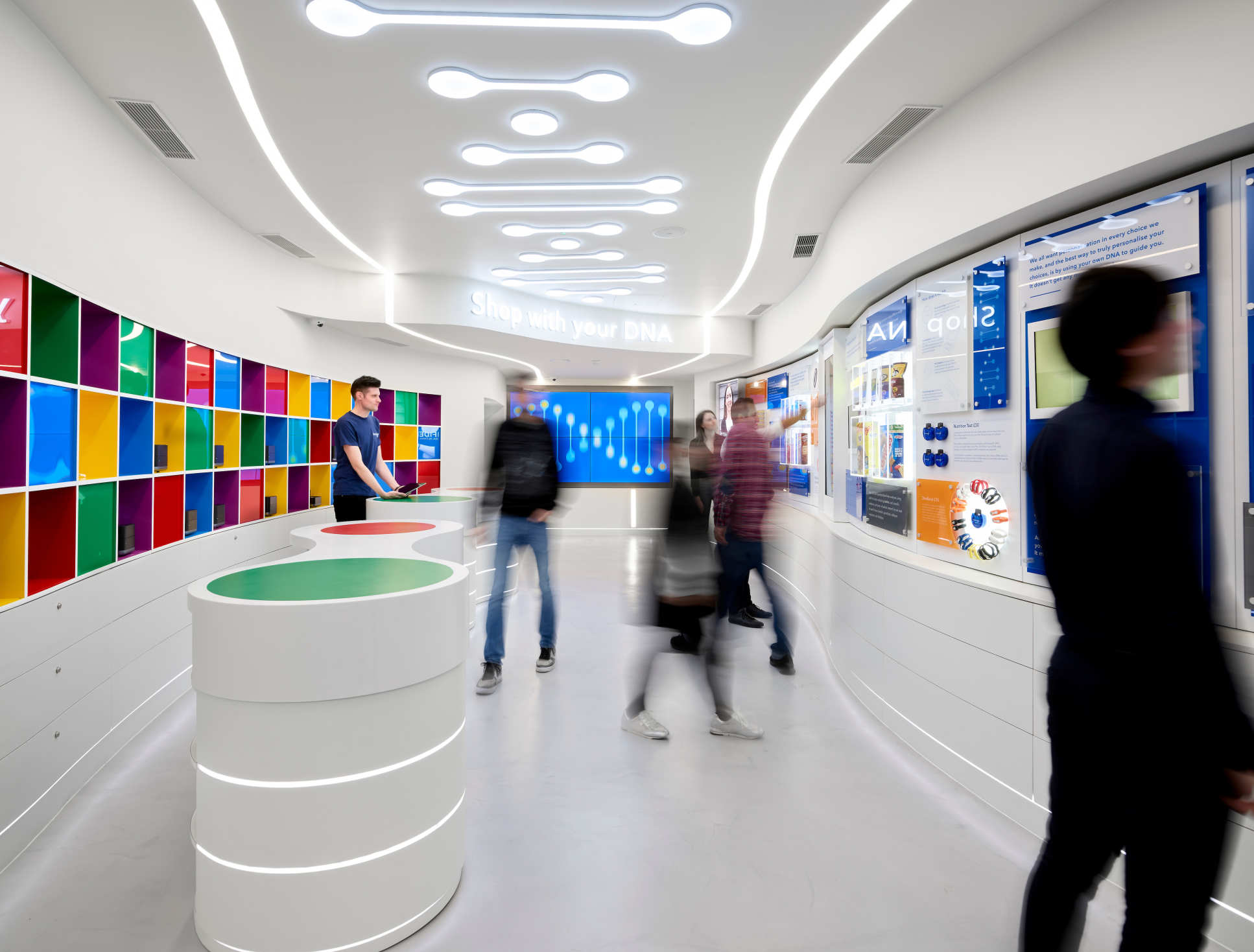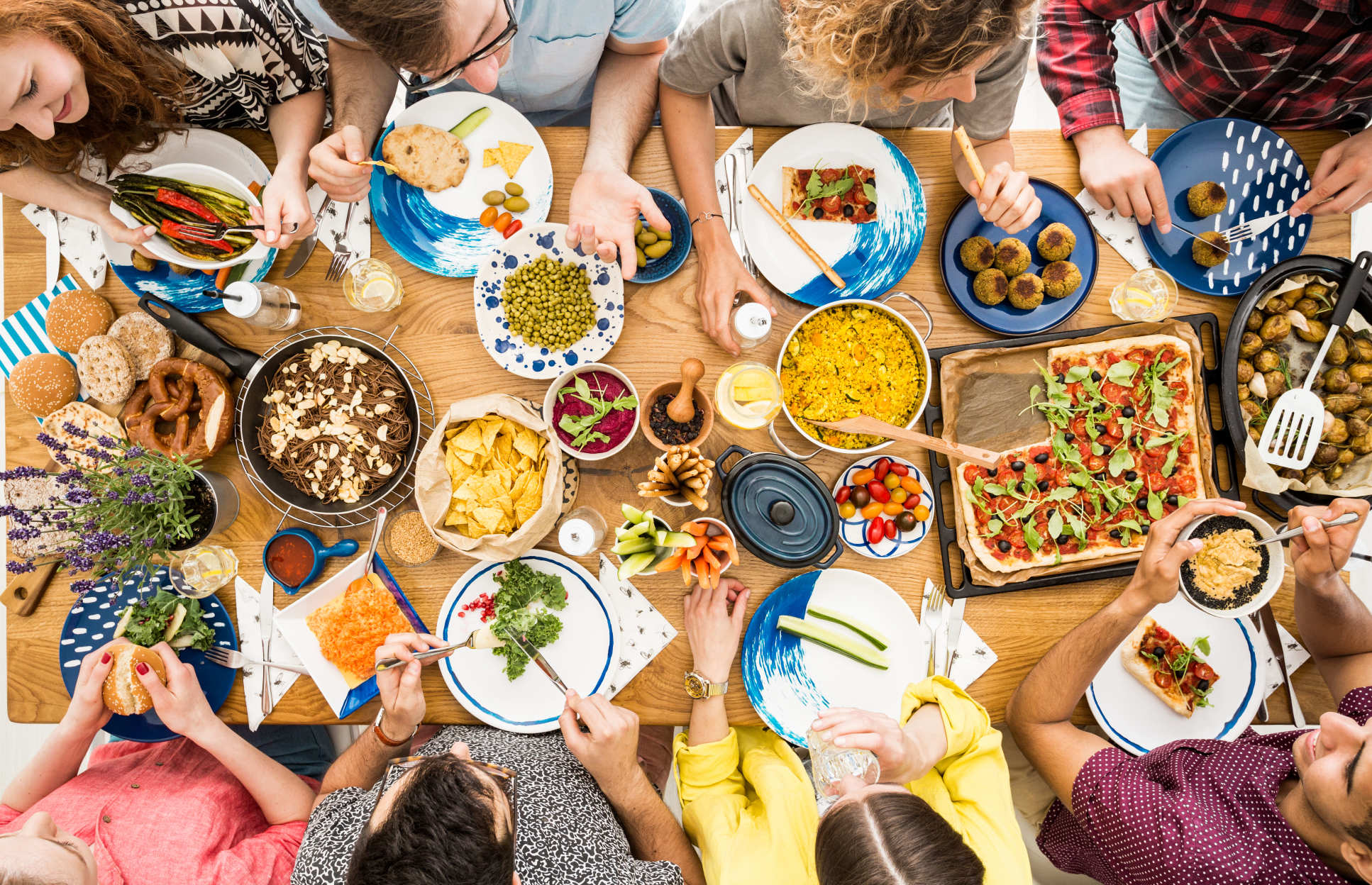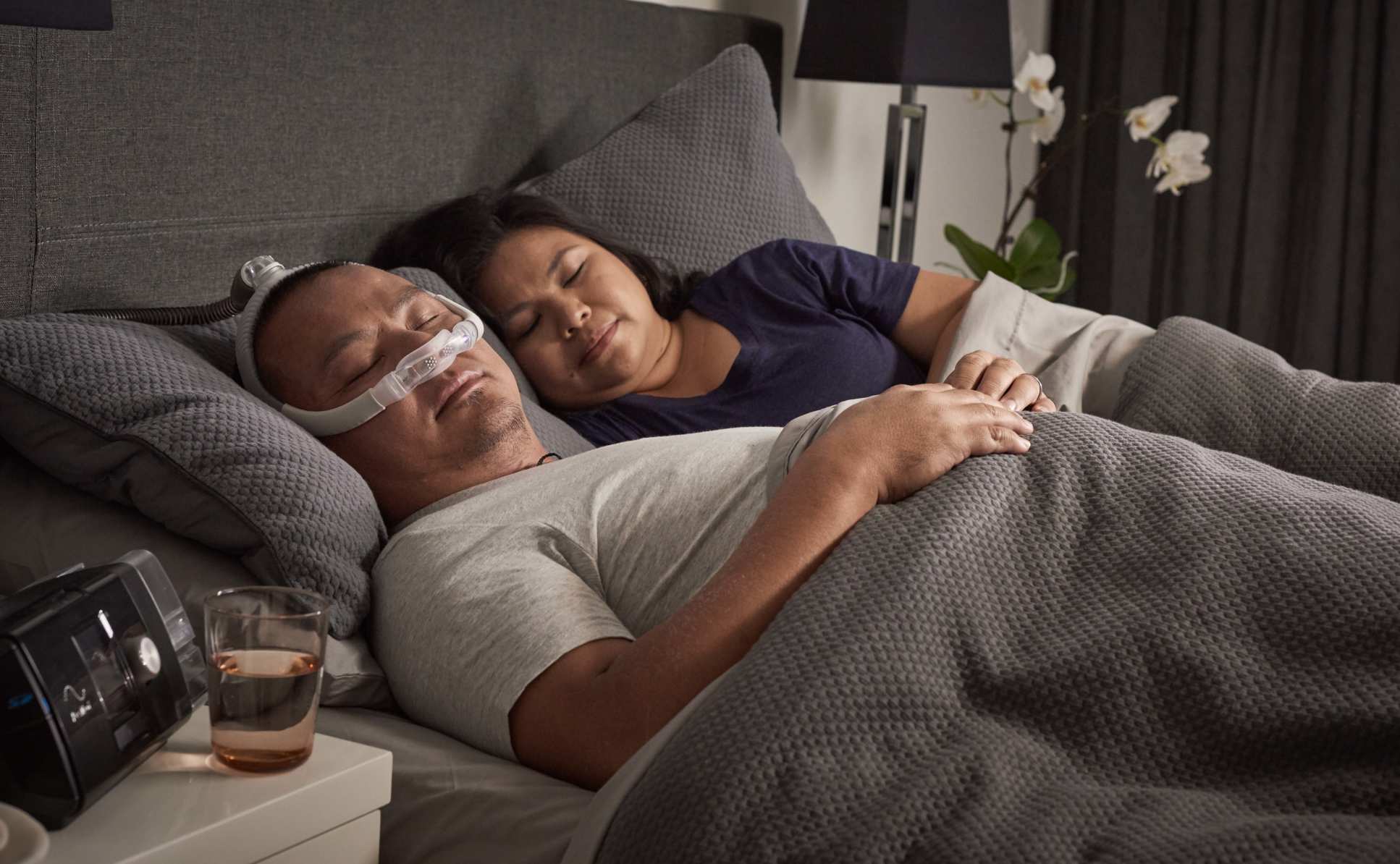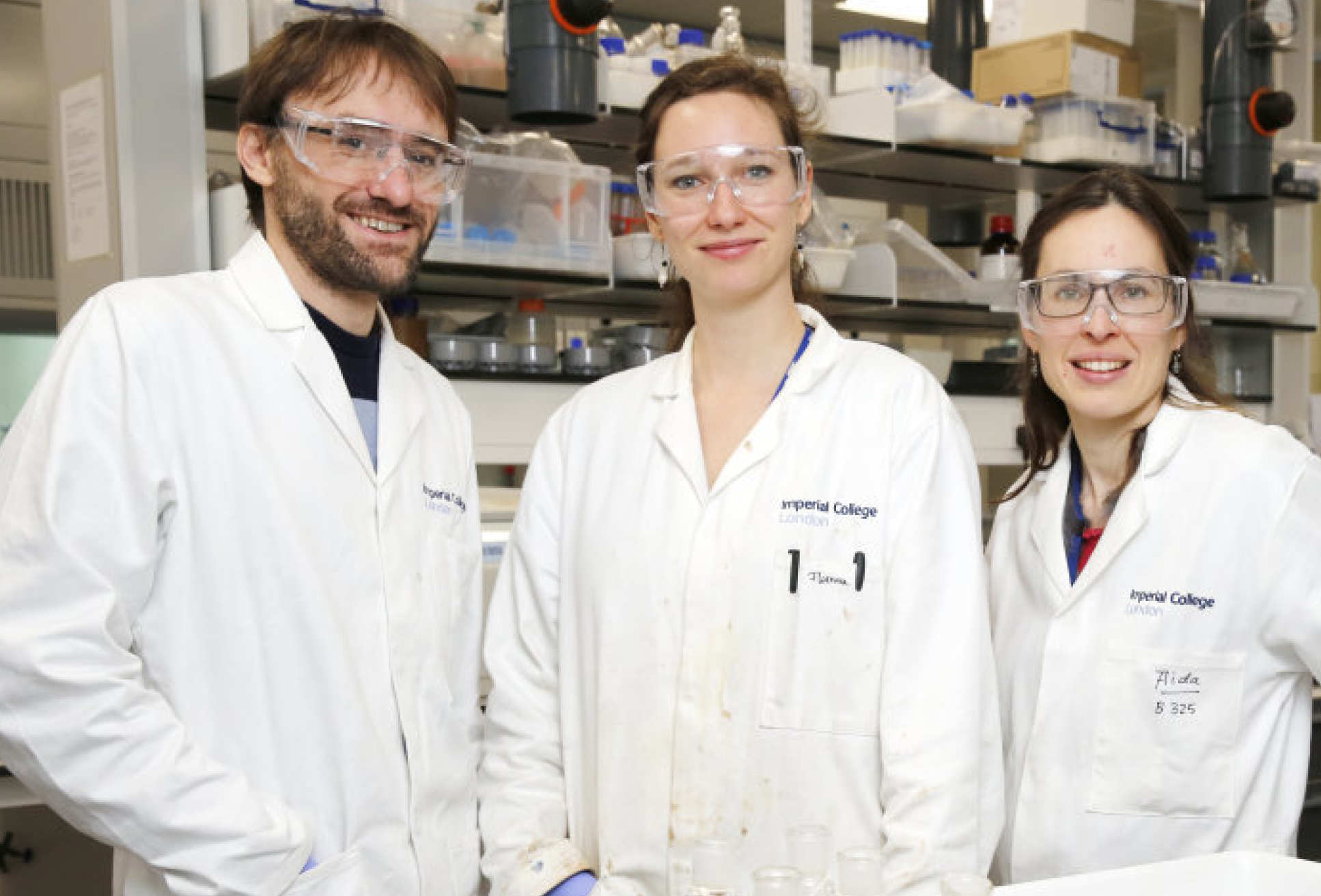6 ways Imperial can help you achieve your New Year’s resolutions

We look back at the past year to see how Imperial’s researchers could provide inspiration and help with your 2020 New Year’s resolutions.
Need some help starting 2020 on the right foot? This research might offer some inspiration.
Eat healthier

DnaNudge, the world’s first DNA-Based service for healthier food choices, opened its flagship store in Covent Garden in November. The start-up was co-founded by Imperial professor Chris Toumazou.
Customers can come to the store for a quick DNA test, which will be analysed and profiled for key nutrition health traits such as hypertension and type 2 diabetes.
Shoppers can then scan over 500,000 different products from the UK and then either the mobile app or wearable band will ‘nudge’ them into making healthier food choices.
Read more: Imperial startup launches flagship store in the heart of London
Avoid fake news

We hear so much about ‘fake news’ that it can be difficult to know who to trust to be reliable information sources. By understanding how misinformation is spread, researchers at Imperial are looking to tackle the ‘fake news’ problem.
Dr Julio Amador, a research fellow at Imperial College Business School, and his colleagues have published several studies looking at how misinformation spreads through Twitter. In an interview earlier this year, he highlighted two main ways which this happens: previous exposure to the misinformation and polarisation (someone is more likely to assume something is true if it is from a source with similar political and social attitudes to their own).
Imperial’s Professor Michael Bronstein has previously developed a type of machine learning algorithm, called geometric deep learning (GDL), which can be used to find patterns in data networks. He and his team are building a platform which can detect and classify misinformation using those patterns.
Read more: Tackling the fake news problem
Reduce food waste
One in three of us in the UK throws away food because it is past it’s sell-by date, yet 60% of the food we throw away each year is actually safe to eat. As consumers we want to ensure that the food we are eating is safe, but also avoid throwing it away unnecessarily.
Dr Firat Güder's team at Imperial’s Department of Bioengineering is hoping to tackle the issue of food waste, by developing a sensor which is able to detect food spoilage gases in meat and fish. The sensors, which are biodegradable and non-toxic, are made by printing carbon electrodes onto cellulose paper. The team believes that these low-cost sensors could eventually replace use-by dates, which are less reliable at indicating freshness and edibility.
Read more: Food freshness sensors could replace ‘use-by’ dates to cut food waste
Reduce your household carbon footprint

Imperial’s Dr Richard Carmichael produced an independent report for the UK Committee on Climate Change, recommending policies that will help people make greener choices.
The report recommends government policies that will make low-carbon options more affordable and accessible for all households. The report suggests several ways for the government to do this, including investing in public transport networks, improving access to plant-based foods and improving domestic heating systems with electric heat pumps.
The UK government is legally committed to reaching a ‘net zero’ economy (where a region removes the same amount of carbon that it emits) by 2050. Dr Carmichael hopes that this report can provide consumers with the incentives and information to help them make choices to significantly lower their household carbon footprints.
Read more: Households could make big emissions reductions with the right Government support
9 things you can do about climate change
Get more sleep
Researchers at Imperial are looking at ways to improve the amount of sleep and the quality of sleep that people are getting.
Sleep Apnoea

Over one billion people globally are affected by sleep apnoea, and some estimates suggest that as many as 8 million people in the UK may have a mild form of the condition.
A study led by Imperial found that CPAP machines (a mask worn over the mouth or nose at night which keeps airways open) can improve vitality and energy levels in people with mild sleep apnoea. Previously these machines have only been provided on the NHS to people with moderate or severe forms of the condition. This is the first time any research has shown that CPAP machines could be useful in treating mild sleep apnoea as well.
Read more: Face mask can help combat mild cases of sleep condition
Circadian Rhythms

As well as improving the quality of sleep once people are actually asleep, scientists at Imperial have been researching the different types of brain cells which help regulate when we sleep.
The study, led by Dr Marco Brancaccio, found that astrocytes (the star-shaped cells found in the brain and spinal cord) are capable of restarting the circadian rhythm of neurons in mice. These cells were previously thought to play a mere supporting role in the regulation of circadian rhythms.
The researchers are hoping that these significant findings could lead to new treatments for disrupted circadian rhythms, which can cause sleep disorders and also contribute with a wide range of health conditions, including dementia and cancer.
Read more: Brain’s ‘support cells’ help mammals keep time
Reduce plastic consumption

And a final possible New Year’s resolution which Imperial researchers are hoping to assist with is by enabling consumers to reduce their plastic consumption by providing sustainable and greener alternatives.
Chrysalix Technologies are a bio-refining start-up who use waste wood and agricultural byproducts as well as sustainably grown biomass to produce bioplastics, biofuels, biomaterials and greener chemicals.
They have just been awarded a €2.3m grant from the EU, and are planning to use this money to build a pilot plant, thousands of times bigger than their lab at Imperial, and eventually produce more plants which will allow them to turn waste wood (much of which was previously unrecycled) into renewable materials and fuels.
Read more: Biorefining startup Chrysalix Technologies wins major European funding
Also read ‘Cleaner, greener plastics’ Imperial Stories feature
---

Enjoy reading Imperial’s research and College news? Be the first to catch our stories with Imperial Today – the daily email bulletin of the College’s freshest online news and digital content. Sign up to Imperial Today.
–
Article author: S. Reid-Collins
Article text (excluding photos or graphics) © Imperial College London.
Photos and graphics subject to third party copyright used with permission or © Imperial College London.
Reporter
Sarah Reid-Collins
Communications and Public Affairs